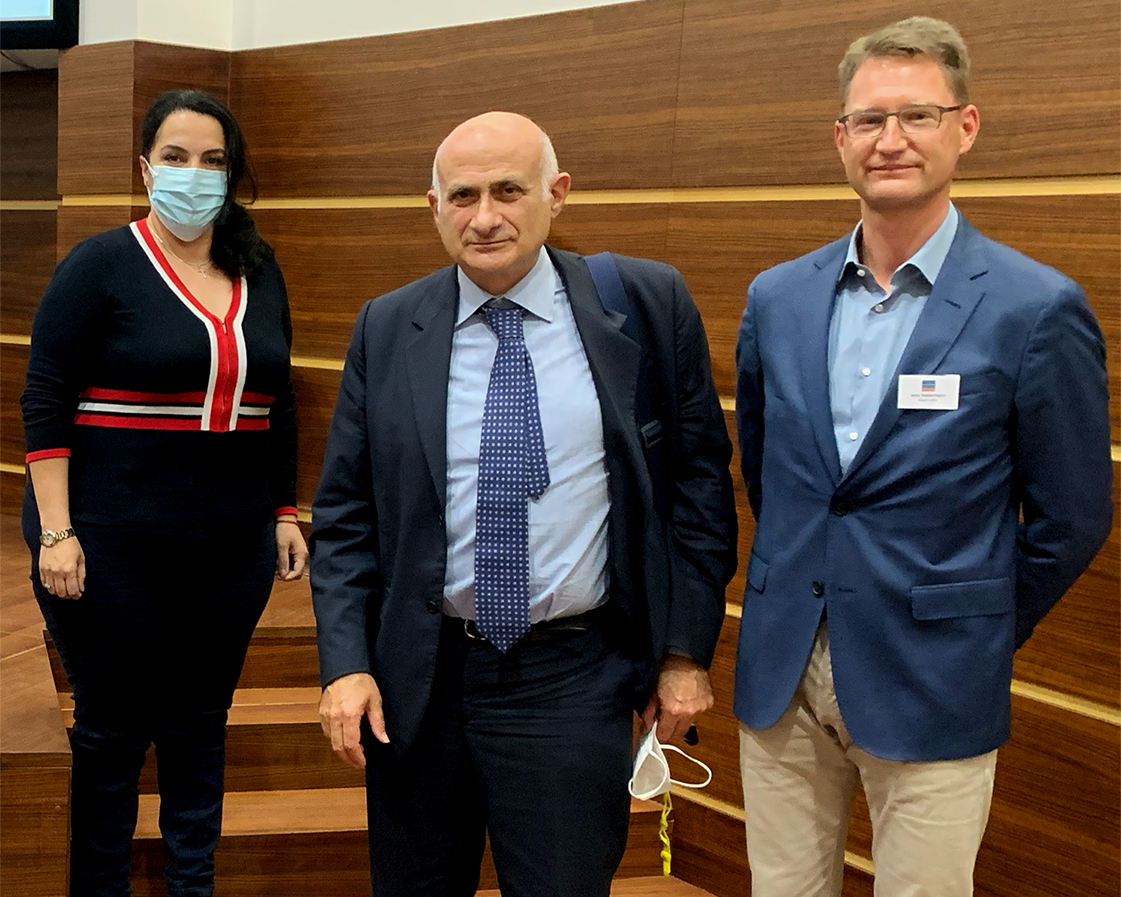I am looking for information as
Researcher

Industry

Patient

Giuseppe Ippolito – General Director for Research and Innovation in Healthcare – Ministry of Health – closes BBMRI-ERIC Paediatrics event
Highly regarded epidemiologist and General Director for Research and Innovation in Healthcare at the Italian Ministry of Health, Giuseppe Ippolito, spoke in depth on the value of cooperation, challenges of data sharing and importance of RIs at the close of BBMRI-ERIC and ESBB’s paediatrics workshop.
The event took place in Rome from 13-14 October and brought together leading paediatric and rare disease researchers and scientists, biobanks, patient advocates, Ministers and the European Commission to address challenges around biobanking with children.
Ippolito drew on decades of experience in international collaboration to contextualise why paediatric biobanking is so important. Citing the US, he said:
“Recent analysis of biobanking documented that less than 40% of biobanks stored samples from paediatric patients. Most the children’s samples were collected for genetic diseases, epidemiological transition from the acute to the chronic diseases and was not followed by similar progression in data collection.”
A similar scenario is reflected across Europe.
Understanding wider issues
Tapping into the sociological issues, a key event strand, when biobanking with children. Ippolito said:
“This is also one of the key aspects from a theoretical point of view – and I know the theoretical aspects are really considered at BBMRI-ERIC – along with tension of using validation of diagnostic tests that have commercial value which is not always consistent with the goal of the donated materials for research.”
These complicated theoretical issues are covered in depth for members by the BBMRI-ERIC ELSI team. To coincide with the workshop, they launched Knowledge Base guidance on biobanking with children.
Sustainability and cooperation
The difficulties of navigating the original mandate for a sample and later reuse, plus the sustainability of biobanks, were recurrent topics for the Minister. Responding to BBMRI-ERIC’s Prof. Jens K. Habermann’s question on the need for joint working, Ippolito said:
“Sustainability is different country by country and it is difficult to consider that there is one single approach to sustainability. Key is the use of materials stored at national level and for application to national calls…and how the materials are collected and reported in the ESFRI inventory for European projects. Materials can be used at a national or international level depending on their availability.”
Ippolito expanded on why positive solutions were to be found in member state participation in ESFRI, an initiative co-funded by the European Commission, because it is:
“Defining a common approach between the different consortia and that is really important. Now, we store different materials, we store biological materials, we store nucleic acids, we store microbiota, we store patient’s materials from clinical trials. The information needs to be made available to the different consortia – and not just European consortia.”
Defragmentation warning
This cooperation, particularly successful during the COVID pandemic, will have a tenuous future if there is defragmentation in the biobanking and biomolecular resources spaces rather than the common approach sought by the EC. Ippolito warned how, particularly in paediatrics where there is already a strong EC network that:
“It is important to avoid creating new systems and models of biobanking in the paediatric area that is independent from the others.”
Stronger together
Biobanking across Europe is at a crossroads as ambitious cohorts are required for research, expectations of quality are raised (vital for accessing larger projects), and the need to marry clinical and sample data throughout the process becomes more pressing. Ippolito spoke of the value that BBMRI-ERIC provides for strengthening biobanking across Italy:
“The interface that we have with BBMRI-ERIC, and the Italian network of Institute of Research and Care (IRCCS) of the Ministry of Health, will help us redefine a strategy to avoid conflict, confusion and competition between hospital, university and clinics which is not useful for the health of the country.”
These are ambitious times for Ippolito as he seeks to define an Italian model for the prevention of disease, including paediatric diseases. This includes structural changes to strengthen quality control in the integration of biological information with clinical information. To support this vision, Italy already boasts three accredited biobanks, one of which is profiled here.
In concluding his address, Ippolito returned to the role that BBMRI-ERIC, within the research infrastructure landscape, plays in fostering cooperation when he stated:
“We have to work together with the member states; the consortium member states must fund the infrastructures – it’s really critical.”
About the workshop
The successful paediatric biobanking and minor engagement workshop is part of the EBW22 Roadshow. It was held in partnership with the BBMRI-ERIC Stakeholder Forum Patient Pillar, BBMRI.it, the Research Translational (IRCCS) Paediatric Bambino Gesù Hospital, and the paediatric network IDEA.
A major event to bring the ELSI community together, it showcased best practice with an aim to work towards a harmonised approach to paediatric biobanking across Europe. This was made possible by the partnership between the IRCCS Biobanks (Istituto di Ricovero e Cura a Carattere Scientifico) and BBMRI.it.
BBMRI-ERIC’s Sara Casati has authored two essential ELSI Knowledge Base resources related to this topic:






